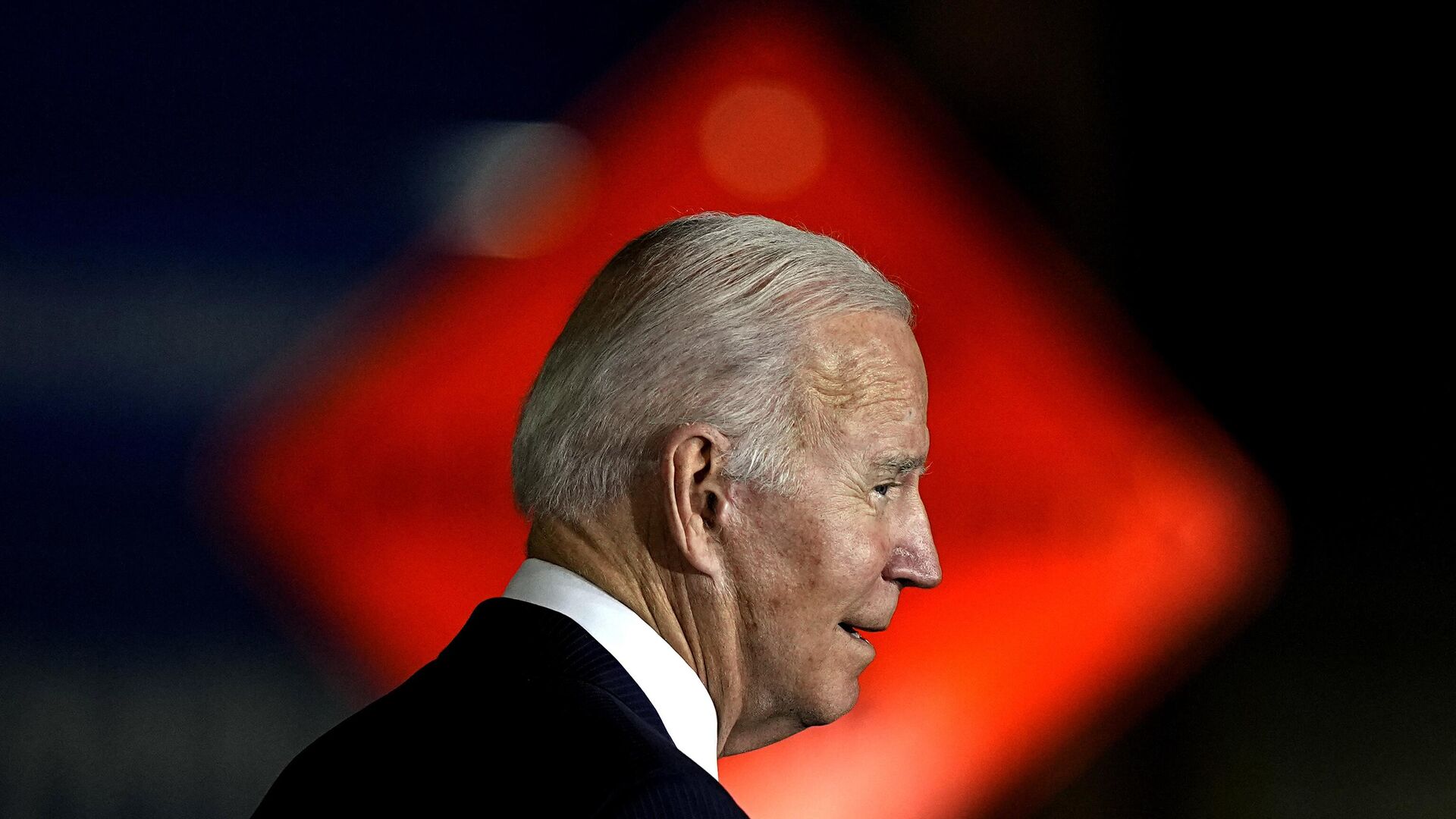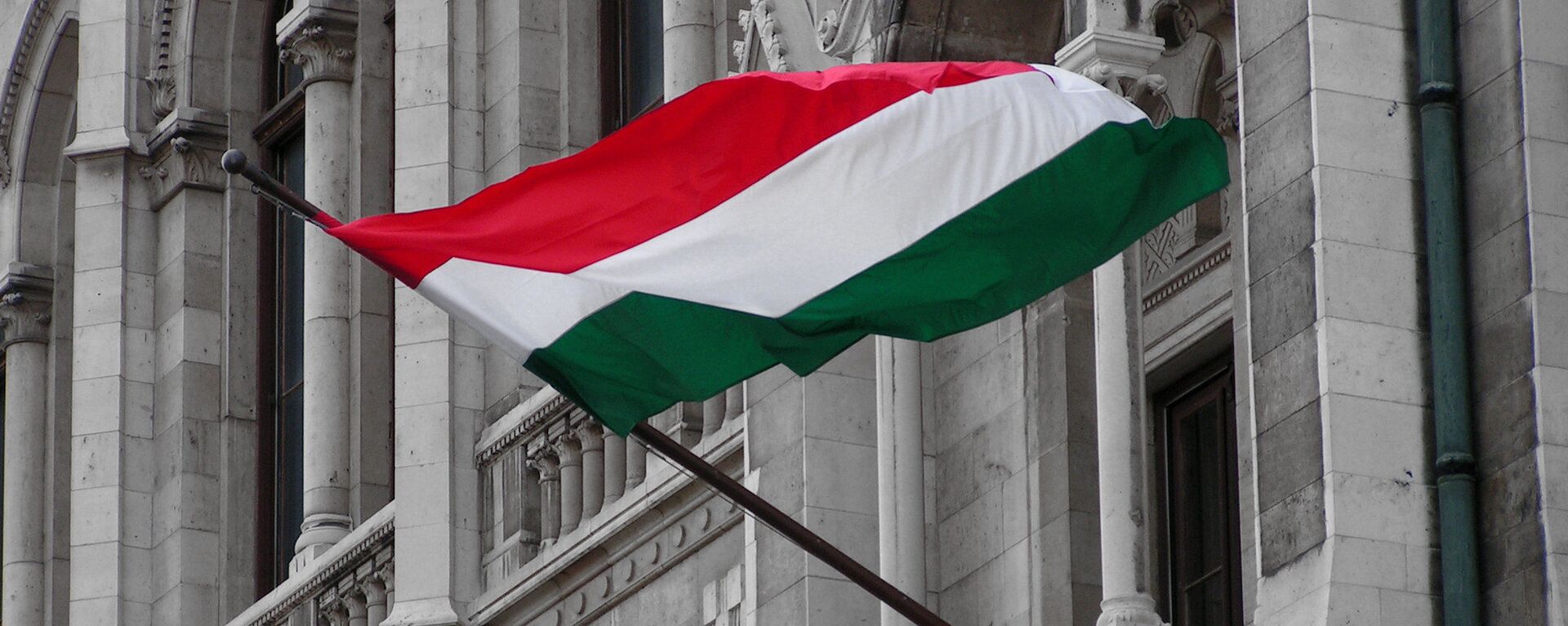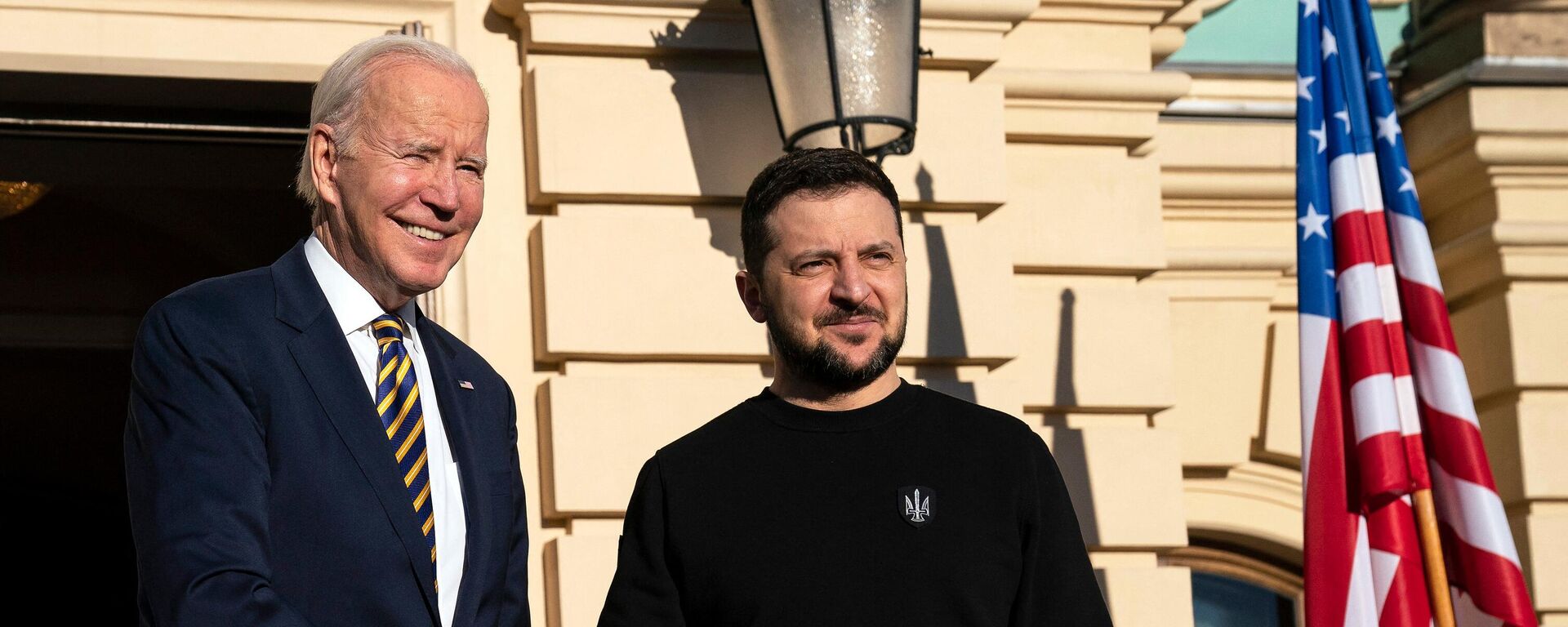https://sputnikglobe.com/20230328/bidens-second-summit-for-democracy-participants-agenda-and-major-flaws--1108873510.html
Biden's Second Summit for Democracy: Participants, Agenda, and Major Flaws
Biden's Second Summit for Democracy: Participants, Agenda, and Major Flaws
Sputnik International
The Biden administration scheduled the second virtual "Summit for Democracy" for March 28-30, which it will co-host with the governments of Costa Rica, the... 28.03.2023, Sputnik International
2023-03-28T15:32+0000
2023-03-28T15:32+0000
2023-03-28T15:32+0000
sputnik explains
us
russia
china
summit
democracy
ukraine
volodymyr zelensky
belarus
joe biden
https://cdn1.img.sputnikglobe.com/img/07e7/01/15/1106544326_0:160:3073:1888_1920x0_80_0_0_c7f07e2cc51c8d8e2f762904727758bd.jpg
Washington has assembled world leaders in a virtual, plenary format to address alleged threats posed by authoritarian leaders, public distrust, high inequality, digital disinformation, and weak state capacity to democracy and human rights around the world.The recent gathering was preceded by the December 2021 Summit for Democracy that prompted criticism from the Western mainstream press at the time. In particular, Washington invited Taiwan, seen as an inalienable part of the People's Republic of China (PRC) by Beijing, but snubbed the PRC. Likewise, the Biden administration excluded El Salvador, Guatemala, Honduras, Russia, Iran, and Venezuela, to name but a few, from the list. Remarkably, Washington's NATO allies Turkiye and Hungary weren't invited either.All in all, the first Summit for Democracy brought together over 100 participants from across the world in 2021. 77 invitees ranked as "free" or fully democratic countries, 31 countries were "partly free," and three were "not free," according to Freedom House, a Washington, DC government-funded Cold War-era organization.This year, the Biden administration extended invitations to 120 global leaders, leaving Turkiye and Hungary off the list for the second democracy gathering, again. This time, Ankara and Budapest have been chastised not over their human rights record, but mostly because they have so far refused to slap sanctions on Russia and also delayed Finland and Sweden's accession to NATO. Helsinki's NATO bid was eventually ratified by the Turkish and Hungarian parliaments, while Stockholm's remains in limbo.Nonetheless, Washington invited Bosnia and Herzegovina, Gambia, Honduras, the Ivory Coast, Lichtenstein, Mauritania, Mozambique, and Tanzania to this year’s summit after they were left out of the list for the 2021 gathering, according to the US press. Earlier this month, US thought leaders called upon the Biden administration to push ahead with wooing the Global South, which "[seeks] to exert their power on the world stage" and is snubbing Washington's attempts to isolate Russia. Judging from the 2023 invitee list and the list of co-hosts, the Biden administration is considering the Global South challenge seriously.Ukraine, Foreign Interference & Digital DisinformationThe gathering's leitmotif – to fight against authoritarianism for the sake of democracy – has remained intact. However, the Russo-Ukrainian conflict is likely to play a significant role in the summit, with Ukrainian President Volodymyr Zelensky being scheduled to address the participants on March 28 at a virtual panel session titled “A Just and Lasting Peace in Ukraine."According to the US State Department's press release, the panel will present various perspectives on the elements needed to end the Russo-Ukrainian conflict and "establish a durable peace in Ukraine in line with principles contained in the UN Charter." Still, a year ago the US and its NATO allies forced Kiev to disrupt peace negotiations with Russia and to shred preliminary accords. In October 2022, Zelensky made any peace talks with Russia illegal by presidential decree.It is also expected that Deputy Attorney General Lisa Monaco will discuss how the US Department of Justice is "countering new and evolving threats to the rule of law posed by hostile nation states, from transnational repression to foreign malign influence."On March 29, Joe Biden and his counterparts from Costa Rica, Zambia, the Netherlands, and South Korea will discuss how democracy is delivering "economic growth, prosperity and justice for all," while inviting various international NGOs, opposition figures, youth leaders, and a former political prisoner to testify.Judging by the list of the panel's invitees, which includes "Uyghur rights advocate" Jewher Ilham, "leader of the democratic opposition" Svetlana Tikhanovskaya, and Natalya Pinchuk, "wife of imprisoned Nobel Laureate Ales Bialiatski," the participants are likely to target China, Belarus, and Russia, and to focus on Eastern Europe and the Asia-Pacific region. The Biden administration recently proclaimed Russia and China as Washington's major challenges, while fanning the NATO proxy war against Moscow in Ukraine and poking Beijing by closing ranks with Taiwan.On March 30, the gathering's agenda includes the issue of the misuse of technology "to repress, control, divide, and disenfranchise and the spread of digital authoritarianism" and how the US and its allies can "shape the ecosystem of emerging technologies in line with democratic principles and human rights." For its part, the Netherlands is expected to host a panel titled "Media Freedom as a Cornerstone of Democracy." The aforementioned topics sound especially controversial in light of the Twitter Files expose that showed massive censorship and manipulation of digital media and social networks by US federal agencies; as well as in light of the almost complete blackout of Russian media and the alternative press by the collective West.Why Biden's 'Summit for Democracy' is Chastised Both in US and RussiaBiden's second summit for democracy has already been subjected to criticism both domestically and abroad. US influential Foreign Affairs Magazine pointed out that the first summit failed to bear any tangible results, adding that expectations for the second one are "modest."According to the magazine, even though Biden’s first Summit for Democracy sought to galvanize democratic countries to work toward advancing democracy within their own borders, no monitoring mechanisms have been introduced to track countries’ progress on the commitments they made. The media also criticized Biden for not making defending democracy abroad "a major foreign policy priority." Instead, the US president took the path of least resistance by organizing summits that bring together countries that are already largely committed to democracy and US values. This does not require big efforts or hard choices, the magazine argued.When it comes to the Biden administration's attempts to show its support for Ukraine as evidence of its commitment to defending democracy, "the fact that it has done so much to assist Kiev also underscores how little it has done to counter threats to democracy in parts of the world where the United States has fewer interests at stake," the media emphasized.For his part, Russian Ambassador to the US Anatoly Antonov pointed out that Biden's first forum "was characterized as the epitome of hypocrisy even by a number of observers in the West," while "the situation with the second 'Summit' is actually the same.""Questions arose not only about the list of invited countries, many of which are considered 'undemocratic' here," Antonov told Newsweek, "but also, in principle, about the ability and largely the moral right of Washington – dealing with many political and socio-economic controversies at home – to impose its canons and way of life on others."Earlier, Russian Foreign Minister Sergey Lavrov suggested that the Summits for Democracy were designed to formulate the right of the so-called democracies to promote imaginary assistance to the peoples of "autocracies," bypassing the authorities of these countries.Lavrov noted that Russia, China, Iran, North Korea, Syria, and Venezuela have been declared "autocrats" by the US, because these countries have long refused to obey the West. Furthermore, the US does not present any clear criteria for what genuine democracy is:"If you look at those who were invited to the first 'democratic summit,' there are countries - I do not want to offend anyone - whom the Americans have never ranked as democratic states," Lavrov remarked.Meanwhile, American non-profits are lamenting the fact that the number of "democracies" in the world is shrinking, with Freedom House recently declaring 2022 the 17th consecutive year of global democratic decline.
https://sputnikglobe.com/20230327/budapest-urges-sweden-to-stop-insulting-whole-of-hungary-to-get-nato-bid-accepted-1108813533.html
https://sputnikglobe.com/20230328/chris-busby-europe-may-face-cancer-birth-defects-akin-to-fallujah-if-kiev-uses-depleted-uranium-1108785049.html
https://sputnikglobe.com/20230323/us-and-eu-cant-afford-natos-long-proxy-war-against-russia-in-ukraine-1108732153.html
https://sputnikglobe.com/20230320/how-bidens-room-for-maneuver-in-ukraine-is-dwindling-and-rift-with-kiev-growing-1108607954.html
russia
china
ukraine
belarus
Sputnik International
feedback@sputniknews.com
+74956456601
MIA „Rossiya Segodnya“
2023
News
en_EN
Sputnik International
feedback@sputniknews.com
+74956456601
MIA „Rossiya Segodnya“
Sputnik International
feedback@sputniknews.com
+74956456601
MIA „Rossiya Segodnya“
joe biden's summit for democracy, second summit for democracy, summit for democracy 2023, participants of 2023 summit for democracy, what countries take part in 2023 summit for democracy, what's 2023 summit for democracy's agenda, summit for democracy's panels, democracy vs authoritarianism, ukraine president volodymyr zelensky 2023 summit for democracy
joe biden's summit for democracy, second summit for democracy, summit for democracy 2023, participants of 2023 summit for democracy, what countries take part in 2023 summit for democracy, what's 2023 summit for democracy's agenda, summit for democracy's panels, democracy vs authoritarianism, ukraine president volodymyr zelensky 2023 summit for democracy
Biden's Second Summit for Democracy: Participants, Agenda, and Major Flaws
The Biden administration scheduled the second virtual "Summit for Democracy" for March 28-30, which it will co-host with the governments of Costa Rica, the Netherlands, South Korea, and Zambia in a bid to "renew democracy in the US and around the world." But what’s the gathering really up to?
Washington has assembled world leaders in a virtual, plenary format to address alleged threats posed by authoritarian leaders, public distrust, high inequality, digital disinformation, and weak state capacity to democracy and human rights around the world.
The recent gathering was preceded by
the December 2021 Summit for Democracy that prompted criticism from the Western mainstream press at the time. In particular, Washington invited
Taiwan, seen as an inalienable part of the People's Republic of China (PRC) by Beijing, but snubbed the PRC. Likewise, the Biden administration excluded El Salvador, Guatemala, Honduras, Russia, Iran, and Venezuela, to name but a few, from the list. Remarkably, Washington's NATO allies Turkiye and Hungary weren't invited either.
All in all, the first Summit for Democracy brought together over 100 participants from across the world in 2021. 77 invitees ranked as "free" or fully democratic countries, 31 countries were "partly free," and three were "not free," according to Freedom House, a Washington, DC government-funded Cold War-era organization.
This year, the Biden administration extended invitations to 120 global leaders, leaving Turkiye and Hungary off the list for the second democracy gathering, again. This time, Ankara and Budapest have been chastised not over their human rights record, but mostly because they have so far refused to slap sanctions on Russia and also delayed Finland and Sweden's accession to NATO. Helsinki's NATO bid was eventually ratified by the Turkish and Hungarian parliaments, while Stockholm's remains in limbo.
Nonetheless, Washington invited Bosnia and Herzegovina, Gambia, Honduras, the Ivory Coast, Lichtenstein, Mauritania, Mozambique, and Tanzania to this year’s summit after they were left out of the list for the 2021 gathering, according to the US press. Earlier this month, US thought leaders called upon the Biden administration to push ahead with wooing the Global South, which "[seeks] to exert their power on the world stage" and is snubbing Washington's attempts to isolate Russia. Judging from the 2023 invitee list and the list of co-hosts, the Biden administration is considering the Global South challenge seriously.
Ukraine, Foreign Interference & Digital Disinformation
The gathering's leitmotif – to fight against authoritarianism for the sake of democracy – has remained intact. However, the Russo-Ukrainian conflict is likely to play a significant role in the summit, with Ukrainian President Volodymyr Zelensky being scheduled to address the participants on March 28 at a virtual panel session titled “A Just and Lasting Peace in Ukraine."
According to the US State Department's
press release, the panel will present various perspectives on the elements needed to end the Russo-Ukrainian conflict and
"establish a durable peace in Ukraine in line with principles contained in the UN Charter." Still, a year ago the US and its NATO allies forced Kiev to disrupt peace negotiations with Russia and to shred preliminary accords. In October 2022, Zelensky made any peace talks with Russia illegal by presidential decree.
It is also expected that Deputy Attorney General Lisa Monaco will discuss how the US Department of Justice is "countering new and evolving threats to the rule of law posed by hostile nation states, from transnational repression to foreign malign influence."
On March 29, Joe Biden and his counterparts from Costa Rica, Zambia, the Netherlands, and South Korea will discuss how democracy is delivering "economic growth, prosperity and justice for all," while inviting various international NGOs, opposition figures, youth leaders, and a former political prisoner to testify.
Judging by the list of the panel's invitees, which includes "Uyghur rights advocate" Jewher Ilham, "leader of the democratic opposition" Svetlana Tikhanovskaya, and Natalya Pinchuk, "wife of imprisoned Nobel Laureate Ales Bialiatski," the participants are likely to target China, Belarus, and Russia, and to focus on Eastern Europe and the Asia-Pacific region. The Biden administration recently proclaimed Russia and China as Washington's major challenges, while fanning the NATO proxy war against Moscow in Ukraine and poking Beijing by closing ranks with Taiwan.
On March 30, the gathering's agenda includes the issue of the misuse of technology "to repress, control, divide, and disenfranchise and the spread of digital authoritarianism" and how
the US and its allies can "shape the ecosystem of emerging technologies in line with democratic principles and human rights." For its part, the Netherlands is expected to host a panel titled
"Media Freedom as a Cornerstone of Democracy." The aforementioned topics sound especially controversial
in light of the Twitter Files expose that showed massive censorship and manipulation of digital media and social networks by US federal agencies; as well as in light of the almost complete blackout of Russian media and the alternative press by the collective West.
Why Biden's 'Summit for Democracy' is Chastised Both in US and Russia
Biden's second summit for democracy has already been subjected to criticism both domestically and abroad. US influential Foreign Affairs Magazine pointed out that the first summit failed to bear any tangible results, adding that expectations for the second one are "modest."
According to the magazine, even though Biden’s first Summit for Democracy sought to galvanize democratic countries to work toward advancing democracy within their own borders, no monitoring mechanisms have been introduced to track countries’ progress on the commitments they made. The media also criticized Biden for not making defending democracy abroad "a major foreign policy priority." Instead, the US president took the path of least resistance by organizing summits that bring together countries that are already largely committed to democracy and US values. This does not require big efforts or hard choices, the magazine argued.
When it comes to
the Biden administration's attempts to show its support for Ukraine as evidence of its commitment to defending democracy, "the fact that it has done so much to assist Kiev also underscores how little it has done to counter threats to democracy in parts of the world where the United States has fewer interests at stake," the media emphasized.
For his part, Russian Ambassador to the US Anatoly Antonov pointed out that Biden's first forum "was characterized as the epitome of hypocrisy even by a number of observers in the West," while "the situation with the second 'Summit' is actually the same."
"Questions arose not only about the list of invited countries, many of which are considered 'undemocratic' here," Antonov told Newsweek, "but also, in principle, about the ability and largely the moral right of Washington – dealing with many political and socio-economic controversies at home – to impose its canons and way of life on others."
Earlier, Russian Foreign Minister Sergey Lavrov suggested that the Summits for Democracy were designed to formulate the right of the so-called democracies to promote imaginary assistance to the peoples of "autocracies," bypassing the authorities of these countries.
"Presently, the 'revolutionary team' [of the West], which is convening the so-called summit of democracies, is striving, according to our data, to come up with a draft of some kind of decision that develops the philosophy of confrontation between 'democracies; and 'autocracies,'" Lavrov told the press back in February. "The idea, at least at this stage, according to our data, [is] that these 'democracies' will formulate their demands to 'autocracies' and their rights to bypass 'autocratic governments' to help the peoples whom these 'autocratic governments' are 'oppressing.'"
Lavrov noted that Russia, China, Iran, North Korea, Syria, and Venezuela have been declared "autocrats" by the US, because these countries have long refused to obey the West. Furthermore, the US does not present any clear criteria for what genuine democracy is:
"If you look at those who were invited to the first 'democratic summit,' there are countries - I do not want to offend anyone - whom the Americans have never ranked as democratic states," Lavrov remarked.
Meanwhile, American non-profits are lamenting the fact that the number of "democracies" in the world is shrinking, with Freedom House recently declaring 2022 the 17th consecutive year of global democratic decline.





